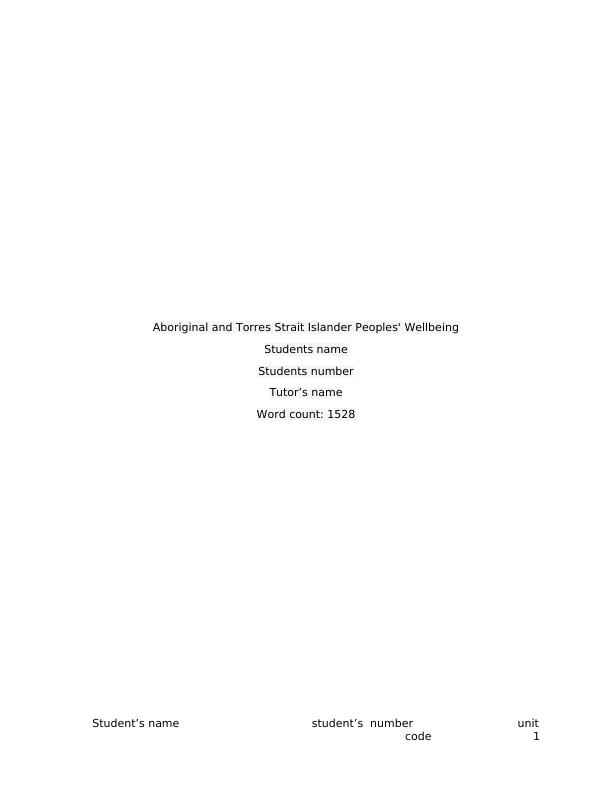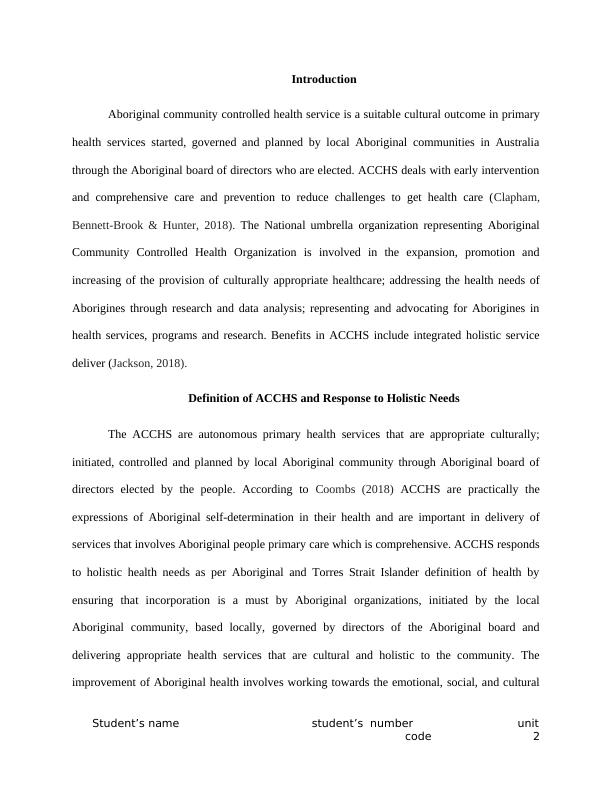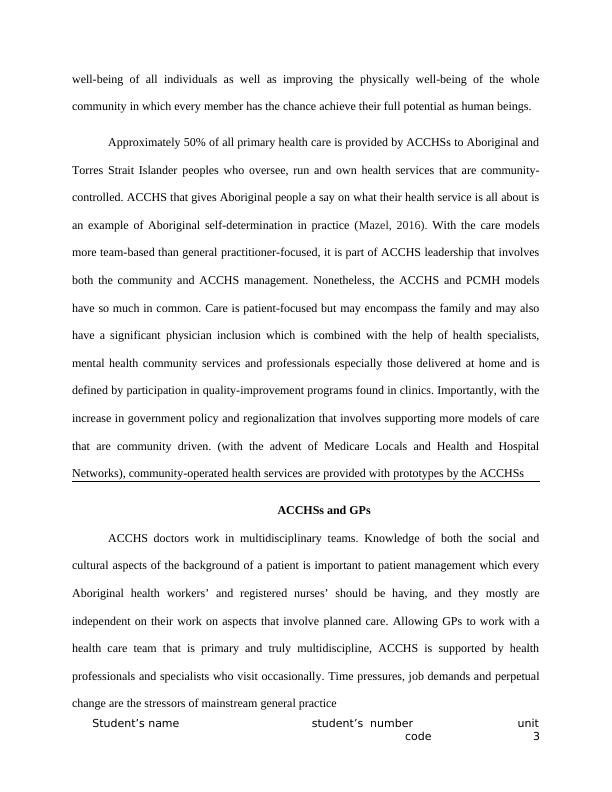Aboriginal and Torres Strait Islander Peoples' Wellbeing
Yatdjuligin (yarning in a good way) assessment task on Aboriginal and Torres Strait Islander peoples’ health and well-being.
9 Pages2349 Words65 Views
Added on 2022-12-26
About This Document
This document discusses the concept of Aboriginal and Torres Strait Islander Peoples' Wellbeing and the role of Aboriginal Community Controlled Health Services (ACCHS) in providing culturally appropriate healthcare. It explores the definition of ACCHS, their response to holistic needs, and the benefits they offer. The document also discusses the role of ACCHS doctors in multidisciplinary teams, the issues faced by GPs working in ACCHS, and the role of Aboriginal and Torres Strait Islander Health Workers (ATSIHW). Additionally, it addresses the importance of self-determination in ACCHOs, ATSIHWs, and cultural safety.
Aboriginal and Torres Strait Islander Peoples' Wellbeing
Yatdjuligin (yarning in a good way) assessment task on Aboriginal and Torres Strait Islander peoples’ health and well-being.
Added on 2022-12-26
ShareRelated Documents
End of preview
Want to access all the pages? Upload your documents or become a member.
Aboriginal Community Controlled Health Services: Providing Holistic and Culturally Safe Care
|9
|2310
|85
Aboriginal Community Controlled Health Services: Providing Culturally Safe Primary Healthcare
|8
|2277
|265
Cultural Safety
|11
|2354
|446
Aboriginal Health Services
|9
|2395
|96
Question 2: Primary health services and care interventions
|1
|497
|83
Aboriginal Community Controlled Health Services (ACCHS): History, Services, and Challenges
|6
|1941
|105



